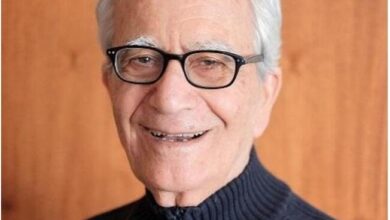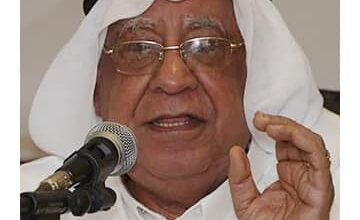The Concept of Peace between the Zionist and Arab Minds By Dr. Waleed Abdelhay
By Dr. Waleed Abdelhay

The Concept of Peace between the Zionist and Arab Minds
By Dr. Waleed Abdelhay
Translated from Arabic on October 13,2025
I argue that the Zionist mind, which relies on the biblical source on the one hand and the Western philosophical source on the other hand, does not see the concept of peace as the natural state in the universe. Still, rather than conflict and contradiction being the basis for change and progress through the use of force in its rough and soft forms, and peace is nothing but the management of conflict and contradiction in one of its stages, with soft tools waiting to return to managing it in other stages, hard tools for the purpose of returning. Soft tools are used.Issue 31 literally states, “Burn all their cities with their dwellings and all their fortresses with fire”, while Jabotinsky, who has a central position in Zionist thought, sees history only from the “heavy boots of the army and this idea of power was reinforced by the fact that most of the Zionist thinkers benefited from Western thought that makes contradiction and conflict the instruments of change (from the Sophists to Hegel, Marx, Nietzsche, Morganthau, and Niebuhr to the literature of the neoconservatives. etc.),
Suffice it to point out that the Messiah Jesus (the Oriental Palestinian) was interpreted as his invitation to turn the left cheek of the one who slaps you on the right cheek as meaning for Nietzsche to draw your sword because it hangs on your left side.
On the other hand, although “some” Arab thought (heritage and literature) involves the glorification of power, the culture of “reconciliation” between contradictions serves to foster understanding and peace. The Arab does not distinguish between managing individual relations and managing political and international relations. The concepts of individual relations dominate the concepts of the specificity of international relations, in individual relations (selling, buying, and proposing for the engagement of a girl, neighbors’ relations, tribal laws in cases of murder, rape, etc., or wasta to do good and reform. The same … The culture of “reconciliation” between the parties appears to be the foundation. The Arab was often sincere in his quest for peace. Still, his problem is that he does not understand the distinction between the political values that govern institutions and states and the social values that govern individual relations. Perhaps. Still, the most blatant example of this is when President Sisi asked the Ethiopian president to “take an oath” regarding the Renaissance Dam. Or the way the Palestinians and Arabs understood their agreements and normalization with Israel, and Sadat even considered that 99% of the problem between Arabs and Israel was caused by what he called the “psychological barrier”… Indeed, the Arabs’ talk about double standards in the West indicates that Arabs do not realize that double standards are an acceptable and legitimate political tactic in managing conflicting international relations.
I invite the Arab reader to return to two important books in contemporary Zionist thought:
The first book is “Rab Attitudes to Israel,” written by Yehoshafat Harkabi in 1972. Harkabi worked as the director of Israeli military intelligence from 1955 to the present. Harkabi1959. A professor at the Hebrew University, the conclusion of the book is that he analyzes the explicit and implicit Arab discourse towards Israel, and that the Arabs will only accept Israel by force. He does not see any difference between George Habash (the head of the Popular Front for the Liberation of Palestine at the time) and Pierre Gemayel (the leader of the Lebanese Phalange Party at the time), the former from Harkabi’s perspective must be subdued by force The second is that he realizes the difference in power and accepts Israel, that is, Israeli power is the key to their respective positions. The book (551 pages) continues in this analytical style, warning that any Arab development, no matter how simple, is a violation of the balance of power and must be prevented.
The second book is a book by a professor who also worked at the Arab League, Yehezkel Dror, entitled Crazy State, which was published in 1971, in which he tries to convince the Arabs that in a critical situation, Israel may resort to its nuclear weapons, but – out of force – it sets a hypothesis that Israel must take into account, which is that hostile organizations or countries hostile to Israel possess nuclear weapons, which was confirmed by a study by the US National Defense University (Issue 3-2018) that organizations will reach for weapons. nuclear program in 2050 at the latest, and perhaps earlier, which must be prevented from the Arabs by force.
The background to this thinking is that most Zionist thinkers believe that Arab historical experience indicates that the Arabs were subject to different types of foreign domination (Romans, Persians, Tatars, Ottomans, English, French, Crusaders… As soon as the Arabs felt the strength, they returned to the conflict and won, so Israel must avoid the mistake that these foreign powers made by not allowing the Arabs to develop (veto on Arab development), so that the historical scene will not be repeated.
This means that the Arabs must realize that Israel does not trust their peace, no matter how much they offer signs of submission and surrender, and the concept of peace then is that the Arabs remain weak, and this can only be done by means that keep them weak, through tools that are summarized by Israeli intellectuals in the following:
1- Employing the major countries by manipulating their interests to keep the Arabs in a state of weakness
2- Fueling intra-Arab disputes in all intellectual, political, and economic ways (Shiite, Sunni, Muslim, Christian, narrow nationalities, countryside, city, rich and poor, border issues, etc.)
3- Constantly demanding a change in the curricula of education in the Arab world and the elimination of religious texts that are anti-Jewish or push Arabs towards elements of power.
4- Spying on Arabs (Egypt is the first step in normalization and peace with Israel, after the treaty with Israel, it exposed dozens of spy networks, starting with the first discovery in 1985 (a 9-member spy network), to Dalia Ziadeh, the director of the Egyptian Center for Free Democratic Studies, who fled to Israel (November 2023), and the number of spies exposed in 1985, 1986, 1987, 1990, and 1992 until now has reached more than 74 cases.
5- The growth of the Israeli political parties that are most supportive of the use of force with the Arabs, as the Israeli right has been growing since 1977 until now, while “the Israeli left, despite its height, is retreating to the limits of marginal forces”, and if we compare the pacifist tendencies with the warmongering tendencies in Israeli society, we will find the following (and we can return to the Jewish Library):
The percentage of those who do not trust peace with the Arabs has increased from 61% to 74%.
b) The percentage of those who do not support the establishment of a Palestinian state increased from 62 to 73%
c) Those who reject any recognition of Hamas as a Palestinian Authority (88%)
Those who agree to return to the 1967 borders constitute only 13%
6- Supporting all countries that have tense relations with the Arabs, which is fully evident in the penetration into the African continent, especially the neighboring states of the Arab countries, such as the Sahel countries, Ethiopia, and Kenya. Etc.
7- Objecting to nuclear projects in the Arab region and insisting on a monopoly on nuclear weapons in the region.
Synopsis:
I want to ask a specific question: since 1979, despite peace and normalization, the Arab world currently ranks first among the world’s geopolitical and geostrategic regions in terms of instability, as the rate of stability in the Arab world is less than half of the global stability rate (2.2 for Arabs compared to 5.3 for the world). The Arab world ranks low in democracy, scientific research, income differences, and social crime rates, yet it ranks high in defense spending, military budgets, and military ranks. Its social incompetence ranks low, and its incompetence is constantly rising. Yet, the number of people killed in international and civil wars in the Arab world is the highest in the world. With all these pressures, we insist that peace is the best option, while the other insists on our absolute submission. Is the difference between peace in the two minds clear? There is a big difference between the mentality of the mukhtar, the mayor, and the sheikh of the tribe, and the mentality of the strategist





